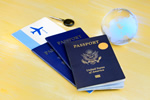Saving versus spending for expat professionals in Dubai

Saving versus spending for expat professionals in Dubai
If winning the lottery is the dream of those in everyday jobs, getting relocated to Dubai is the dream of expat professionals. The prize is the same – money, money and more money – enough to embrace a lifestyle impossible without fate’s kick in the right direction. In the 21st century, it’s all about mindlessly spending, not just on needs, but on a vast selection of wants. In many ways, Dubai is the perfect example of uncontrolled retail therapy, one reason why many expat professionals leave for their home countries in comparative poverty.
Everyday spending such as food, clothes, fuel for the car, utility bills and rent are all part of the monthly budget, with parents adding full or partial school fees, health insurance and suchlike, all eating holes in even the most generous salary including perks. What’s left is usually referred to as savings, easily squandered during a wander around a luxury mall in one of the world’s most consumer-oriental locations. In the UAE as a whole, expats are bombarded by ads pushing the latest, fanciest, largest and priciest must-haves, without which attempts at social upgrading will be impossible. At that point, saving money becomes a big joke.
For those who genuinely do wish to leave Dubai as rich men, creating a savings schedule is the only way to go. Starting small by squirrelling away just five per cent of your monthly salary is fine, as you can increase the amount gradually as you become used to saving. Keeping two bank accounts, one for your regular monthly outgoings and the other for your savings is a helpful solution, allowing you to control your spending more efficiently. Once you’ve a reasonable amount in your savings account, don’t be tempted to immediately sign up for a fund or other product pushed by expat IFAs, as Dubai along with many other popular expat hubs is infamous for investment scams at worst and badly performing so-called investments at best. If you fancy trading as a hobby, wait until you’ve a considerable stash and have studied the subject, then start small and carefully.
Keeping track of all your finances is essential and far easier nowadays with apps and online accounts. Knowing how much is coming in, how much is going out and on what, and where the remainder goes gives you power over your money rather than allowing it to have power over you. If you’re a victim of impulse buying, don’t keep cash in your wallet as it encourages your impulse to spend. Also, don’t automatically convert local prices into your home currency as it isn’t relevant and doesn’t mean anything in Dubai. Lastly, don’t be tempted into buying what you don’t need simply because there's an instalment plan. For example, you do need a set of wheels for convenient transportation, but you don’t need the latest 4x4 with all its bells and whistles if you’re just driving between work and home.
Related Stories:
- Is Kuwaitization the unintended result of the oil price crash? - July 20, 2020
- Expats in Malaysia still banned from overseas travel - July 17, 2020
- HSBC Asia to cut back on internal expat relocations - July 16, 2020
- Tips on integrating for newly-arrived expats - July 15, 2020
Latest News:
- Tips on a trouble-free relocation as an expat overseas - July 20, 2020
- Expats find peace in the covid-19 refuge of Dahab town - July 20, 2020
- Is Kuwaitization the unintended result of the oil price crash? - July 20, 2020
- Expats unhappy abut changes to Korean points-based visa system - July 17, 2020
- Chiang Mai and Bangkok no longer bargain locations for expats - July 17, 2020
- Expats in Malaysia still banned from overseas travel - July 17, 2020
- Vietnam welcomes expats to its safe, affordable lifestyle - July 16, 2020
- Asian tiger economies reach out to expats in Hong Kong - July 16, 2020
- HSBC Asia to cut back on internal expat relocations - July 16, 2020
- Tips on integrating for newly-arrived expats - July 15, 2020


